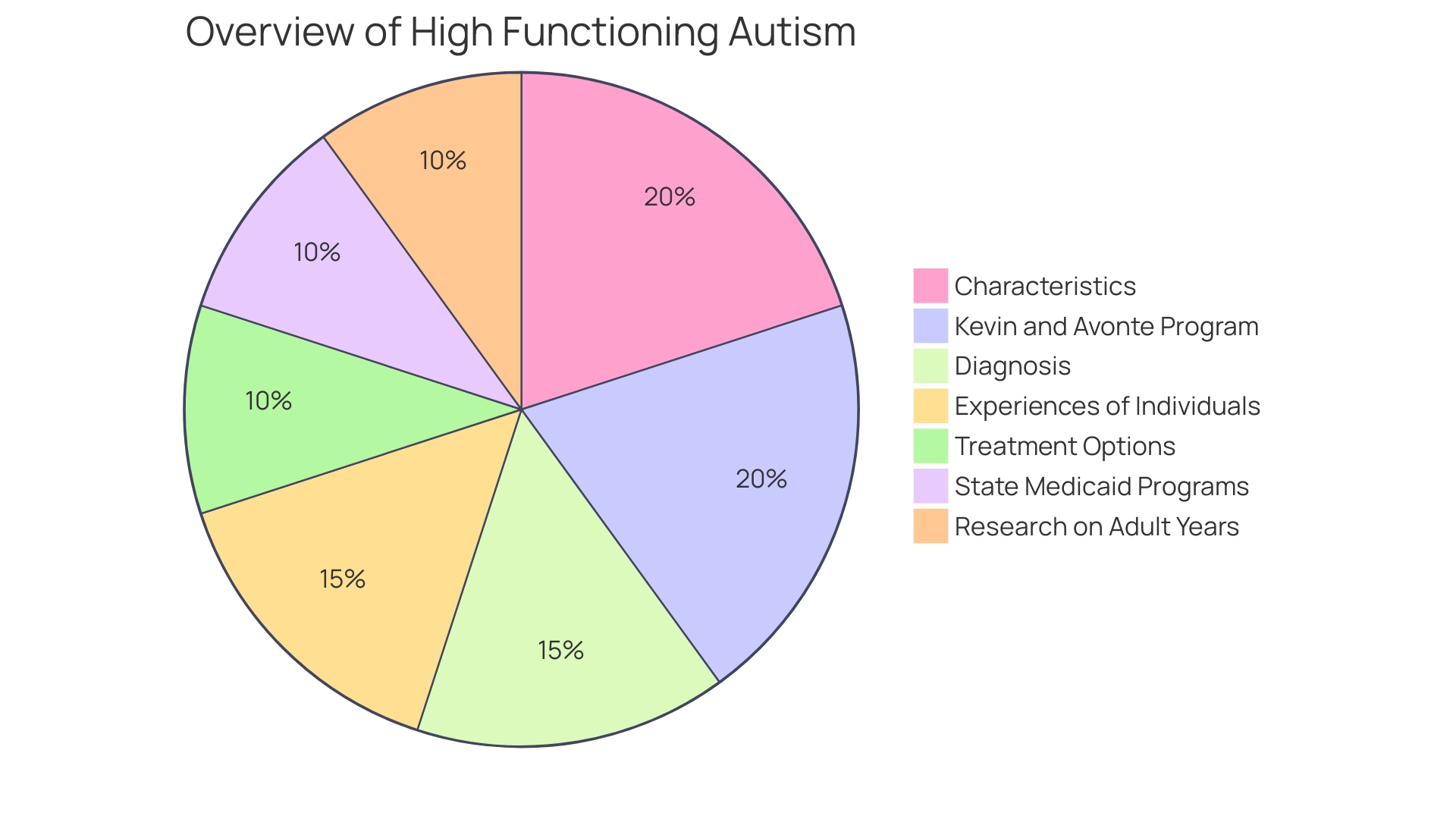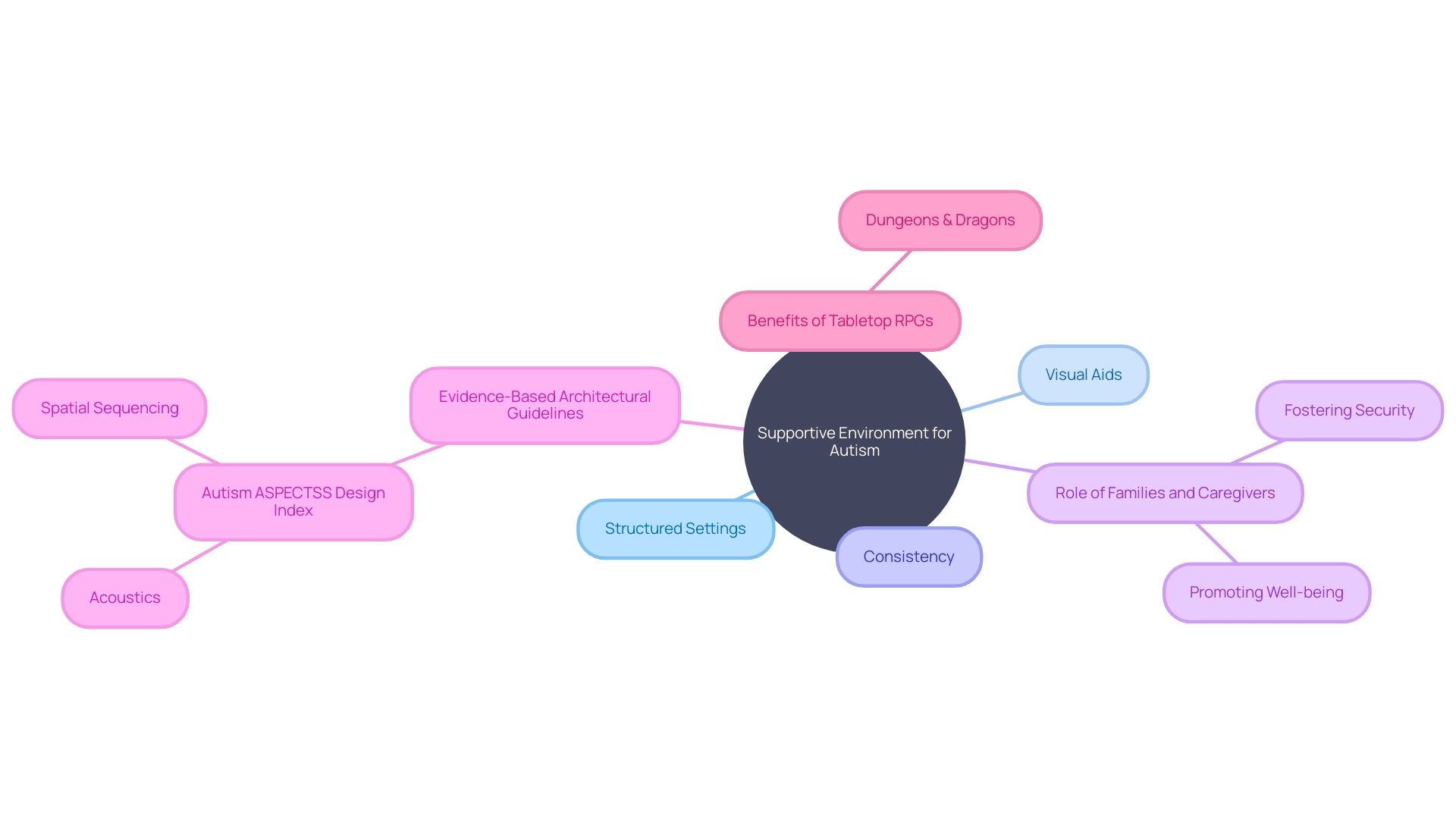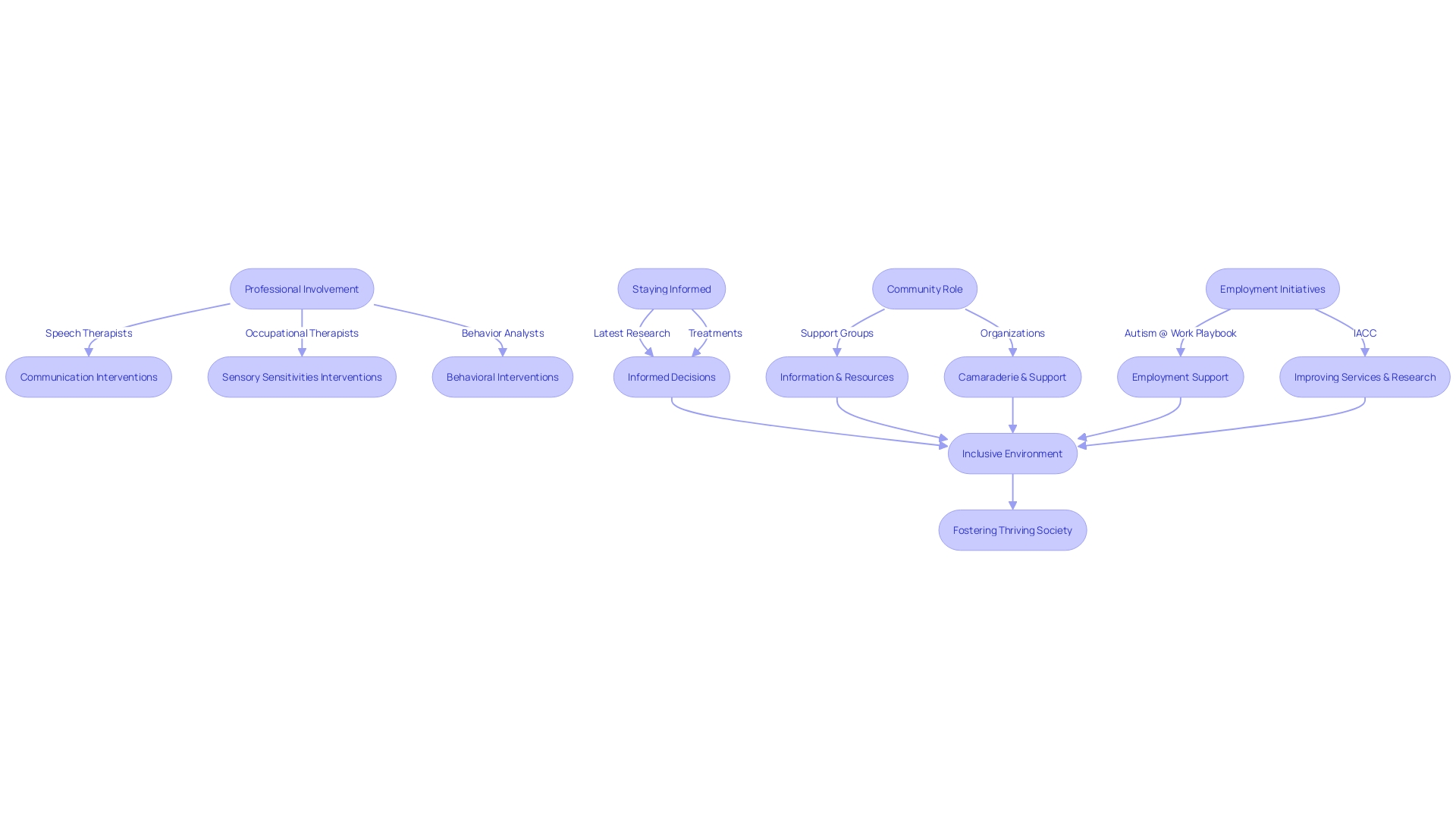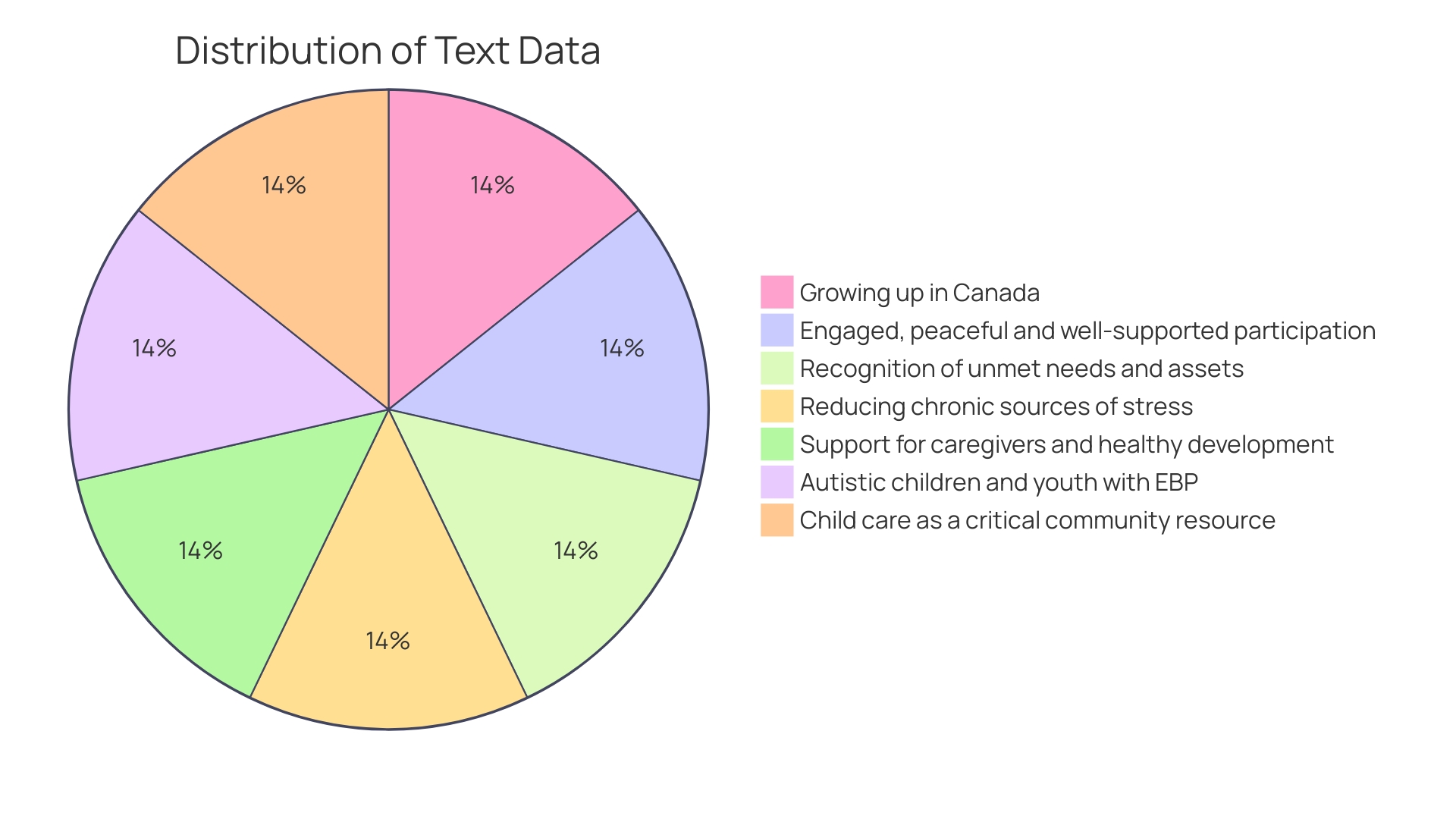Introduction
Autism Spectrum Disorder (ASD) is a complex developmental disability that affects behavior, social skills, and communication. Each individual with autism is unique, experiencing the world in their own distinct way. As parents and caregivers, understanding the multifaceted nature of autism is essential to creating supportive environments that foster growth and development.
This article explores various strategies and approaches to empower individuals with autism, from support strategies and creating structured environments to communication and social interaction strategies. It also emphasizes the importance of individualized educational plans and collaborating with professionals and support services. Additionally, it delves into promoting positive behavior and emotional well-being while highlighting the significance of self-care and advocacy for parents and caregivers.
By embracing these empowering strategies, we can navigate the challenges of autism and ensure the well-being of our children.
Understanding Autism as a Disability
Autism Spectrum Disorder (ASD) is a complex developmental disability with a broad range of impacts on behavior, social skills, and communication. Each individual with autism is unique, and the ways in which they experience the world can significantly differ. People with autism may face challenges in social interaction and may have restricted and repetitive patterns of behavior, interests, or activities.
Recognizing autism as a multifaceted condition is vital for parents, caregivers, and society to foster environments that support growth and development.
Associate Professor Hala Annabi emphasizes that support for individuals with autism should extend beyond initial opportunities, such as employment, to include career growth and development. This approach is echoed in recent studies, suggesting that companies benefit from the diverse perspectives and skills of employees with autism, often seeing higher revenues and profit margins. Moreover, the American Gross Domestic Product (GDP) could see an increase of up to $25 billion if more individuals with disabilities were integrated into the workforce.
Expanding access to digital skills, as demonstrated by The Arc and Comcast's initiatives, empowers people with autism to engage more fully in their communities and workplaces. For instance, Kris from Greely, Colorado, who has been gainfully employed for four decades, benefits from the basic digital skills training provided by the partnership.
The Interagency Autism Coordinating Committee (IACC) strives to unify federal efforts and collaborate with the autism community to advance research and services. Similarly, the Center for Discovery's utilization of artificial intelligence and machine learning exemplifies innovative approaches to understanding and predicting behaviors in individuals with autism, potentially revolutionizing support strategies.
As society continues to embrace the perspectives and contributions of individuals with autism, the notion of disability culture gains recognition. Lawrence Carter-Long and Judy Heumann articulate this culture as a celebration of diversity, where barriers are overcome through innovation, community support, and education. This redefinition of disability culture aligns with the understanding that autism is a natural part of the human condition, enriching society through its inherent diversity.

Importance of Support Strategies
Strategies to support individuals with autism are critical in enhancing their daily experiences and helping them harness their unique abilities. This support becomes particularly vital when considering the scarcity of research on autism in adults. Dr. Gregory Wallace highlights a significant knowledge gap in understanding autism's impact on middle and older adulthood, despite increased awareness and diagnosis in children and young adults.
With recent CDC reports estimating the prevalence of autism diagnoses in children at 1 in 36, the call for effective support strategies across the lifespan is more urgent than ever.
Empowering individuals with autism involves recognizing and affirming their neurodiversity. A survey including autistic adults, parents, and supporters from New Zealand and Australia emphasized the importance of goals that cater to the strengths and interests of autistic children without attempting to change them. These goals also aim to adapt the environment and attitudes of the supporting adults to foster positive life experiences for the children.
Recent legislative changes, such as the expansion of Medicaid coverage through the HCBS Rule, reflect a growing commitment to providing necessary services like occupational, behavioral, and speech therapies. This progress addresses disparities and ensures that a broader range of supportive services is accessible to both children and adults with autism.
The voices of those directly affected by autism resonate powerfully, with calls to acknowledge the mental health challenges faced by 8 out of 10 autistic individuals. These challenges manifest across various settings, rooted in societal shortcomings in understanding and supporting autistic needs. As Dr. David (Dan) R. Offord poignantly stated, ensuring a "fair race" for children, especially those with disabilities, hinges on society's ability to recognize their needs, reduce stress, and equip caregivers with necessary resources.
To stay abreast of the evolving landscape of autism support, caregivers are encouraged to remain informed about new findings, treatments, and therapies. As one parent advocate puts it, understanding the benefits and risks of medications and interventions is crucial, alongside the discernment to navigate online information and distinguish between beneficial and potentially harmful treatments.
In conclusion, support strategies for individuals with autism must be dynamic, tailored, and evolve over time to cater to the diverse needs across their lifespan. As research advances and societal awareness grows, the collective effort towards neurodiversity-affirming goals and accessible services can pave the way for individuals with autism to lead fulfilling lives.
Creating a Structured and Predictable Environment
Creating a supportive environment for individuals with autism is key to fostering their sense of security and helping them excel. A structured setting, which includes both physical and social predictability, can significantly diminish anxiety for those on the spectrum. The Autism ASPECTSS Design Index pioneers this approach with its evidence-based architectural guidelines, emphasizing elements such as acoustics and spatial sequencing.
These design principles ensure that spaces are not just static but are crafted to provide positive experiences as individuals navigate through them.
Incorporating visual aids like schedules, cues, and timers offers additional clarity, reinforcing the structured environment. The role of these visual supports is critical, as they can make daily transitions and activities more manageable. Consistency is another vital component, as it helps to establish routines that autistic individuals can rely on, further promoting their well-being.
Adopting such tailored approaches to space and structure can lead to more engaged and peaceful participation in key life domains, as noted by child psychiatrist Dr. David (Dan) R. Offord, who highlighted the importance of making 'the race fair' for children with disabilities. This philosophy aligns with recent findings that tabletop role-playing games like Dungeons & Dragons can be especially beneficial for individuals with autism, providing clear rules for social interaction and opportunities for imaginative play.
As society continues to recognize the unique needs and contributions of those with autism, structuring environments to support their development becomes an essential part of ensuring mental health and equity. This extends beyond the individual to encompass the well-being of their families and caregivers, who play a pivotal role in nurturing growth and development.

Communication and Social Interaction Strategies
Autism spectrum disorder (ASD) is a complex neurodevelopmental condition that primarily affects communication and social interaction. It's estimated that around 1 in 100 students in American schools are on the autism spectrum, with some displaying exceptional academic abilities across various disciplines. These twice-exceptional students, while often excelling academically, may face significant challenges navigating social situations and adapting to new environments, such as transitioning to college.
For individuals with autism, developing social skills like turn-taking and understanding others' perspectives can require deliberate teaching and practice. Visual tools, including social stories and prompts, have proven beneficial in breaking down communication barriers. This approach aligns with the strengths-based perspective that emphasizes the value of focusing on the unique talents and capabilities of autistic individuals rather than solely on their challenges.
Research indicates that autistic students may thrive in areas requiring attention to detail, strong memory, and innovative thinking. However, the social aspects of university life can be particularly daunting. Studies show that while academic pursuits are generally within their comfort zone, it is the social communication and interaction that pose greater difficulty.
This highlights the importance of person-centered approaches to education and care, which cater to the individual's specific needs and strengths.
Moreover, the need to enhance the involvement of autistic individuals in their own care has been underscored by research findings. Effective communication is crucial in mental health settings, where autistic individuals are more likely to experience co-occurring conditions and face higher risks of hospitalization and suicide. Studies emphasize the importance of ensuring these individuals have a voice in their care, thereby respecting their rights and addressing their health needs appropriately.
The Interagency Autism Coordinating Committee (IACC) works to improve federal coordination and communication related to autism research and services. Their collaborative efforts with various stakeholders, including autistic individuals and their families, reflect a commitment to addressing the diverse needs of the autism community. Similarly, access technology initiatives like AT-Newswire serve to disseminate critical information and resources to professionals and individuals affected by neurodivergence, ensuring that support and knowledge are readily available.
In supporting individuals with autism, it is essential to adopt strategies that leverage their strengths while addressing the areas where they may need additional support. By doing so, we can foster an environment that not only accommodates but also celebrates the diversity and potential of those on the autism spectrum.
Individualized Educational Strategies
Tailoring educational approaches to fit the distinctive needs of individuals with autism is pivotal for their personal growth and learning. Crafting personalized education plans (IEPs) that highlight both strengths and challenges lays the groundwork for setting achievable goals and interventions. Visual aids can serve as powerful tools in learning, while multisensory teaching approaches tap into the various ways individuals with autism perceive the world.
Furthermore, assistive technology stands as a bridge to enhance learning experiences, providing support that is adaptable to the individual's requirements. By acknowledging the unique contributions and potential of students with autism, as emphasized by Dr. David (Dan) R. Offord's vision of a 'fair race,' we foster an inclusive educational landscape. This commitment to equity is echoed by the Interagency Autism Coordinating Committee (IACC), which aims to unite community voices and federal efforts.
With about 1 in 100 students in American public schools diagnosed with autism, some of whom are 'twice exceptional' with gifts across various domains, it is clear that addressing their educational needs is not just a necessity but a conduit for their future success.
Collaborating with Professionals and Support Services
Parents and caregivers of individuals with autism are often on the lookout for expert guidance and support to navigate the unique challenges they face. Collaborating with a team of professionals like speech therapists, occupational therapists, and behavior analysts can be transformative. These experts bring a wealth of knowledge and specialized skills to create tailored interventions that address communication hurdles, sensory sensitivities, and other areas that impact daily life.
Moreover, the community plays a critical role, with support groups and organizations providing a network of information, resources, and camaraderie. The Autism @ Work Playbook, spearheaded by Associate Professor Hala Annabi, exemplifies a commitment to supporting neurodivergent individuals beyond initial employment. It emphasizes the importance of nurturing their careers and advocating for their advancement, acknowledging that neurodivergent employees may require additional support to visualize and achieve professional growth.
The Interagency Autism Coordinating Committee (IACC) serves as a prime example of concerted efforts to improve autism services and research. As a federal advisory committee, it comprises a diverse group of stakeholders, including autistic adults, family members, and professionals, all dedicated to enhancing coordination across federal agencies and partnering with the autism community. Their collective expertise shapes policy recommendations that reflect the needs and aspirations of those touched by autism.
Staying informed about the latest research and treatments is vital. As one caregiver put it, "There are always new findings, treatments, medications, and therapeutic approaches. It's important to stay current."
This ongoing education allows caregivers to make informed decisions about their child's care, from understanding the nuances of prescribed medications to discerning credible information amidst the overwhelming amount of online content.
In the pursuit of mental health and equity for children with disabilities, the late Dr. David (Dan) R. Offord's words resonate deeply, "I do not mind if my children are in a race as long as the race is fair." This principle underscores the importance of fostering an inclusive environment where all children, including those with autism, can thrive and contribute meaningfully to society.

Promoting Positive Behavior and Emotional Well-being
Fostering a culture of acceptance and understanding is essential for individuals with autism to thrive. By emphasizing positive reinforcement and proactive behavior management, we can encourage the development of suitable behaviors and emotional regulation. Celebrating unique strengths and personal accomplishments within a caring and supportive environment can significantly enhance the emotional well-being of those with autism.
This approach aligns with the philosophy that every person deserves a 'fair race' in life, as child psychiatrist Dr. David (Dan) R. Offord advocated. It's about creating equitable opportunities for participation and mental health across all life's domains—school, home, and leisure—especially for those at high risk of social exclusion due to emotional and behavioral challenges. By acknowledging both the unmet needs and the valuable contributions that individuals with autism bring to their communities, we can alleviate chronic stress and ensure that caregivers have the necessary resources to foster healthy development and family well-being.
Self-Care and Advocacy for Parents and Caregivers
For parents and caregivers supporting an individual with autism, the journey can be both rewarding and demanding. It is crucial to embrace self-care and garner support to nourish your own well-being while you nurture your loved one. Practices such as mindfulness can be a balm for stress, while seeking occasional respite care allows for much-needed breaks.
Connecting with fellow parents and caregivers fosters a sense of community, providing strength and shared wisdom. Advocacy is another powerful tool; by fighting for your child's rights and tapping into available resources, you can better navigate the complexities of care and champion your child's development and inclusion. Remember, as you forge pathways for your child in education, social participation, and beyond, you are not alone.
Your resilience and dedication contribute to a fairer race for your child, ensuring they thrive alongside their peers.

Conclusion
In conclusion, by embracing various strategies and approaches, we can empower individuals with autism and create supportive environments that foster their growth and development. Support strategies, such as recognizing neurodiversity and adapting the environment to their needs, play a vital role in enhancing their daily experiences. Creating a structured and predictable environment, utilizing tools like the Autism ASPECTSS Design Index and visual aids, can promote well-being and engagement.
Communication and social interaction strategies, including deliberate teaching and person-centered approaches, help individuals with autism develop social skills and navigate social situations. Tailoring educational strategies, such as Individualized Educational Plans (IEPs) and assistive technology, allows for personalized growth and learning. Collaborating with professionals and engaging with the autism community provide valuable guidance and resources for parents and caregivers.
Promoting positive behavior and emotional well-being through positive reinforcement and celebrating unique strengths contributes to their overall well-being. Self-care and advocacy are essential for parents and caregivers to navigate the challenges of autism and champion their child's development and inclusion. By embracing these empowering strategies, we can ensure the well-being of individuals with autism and create a society that celebrates their diversity and potential.




